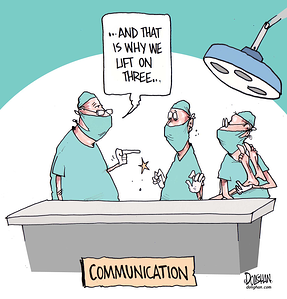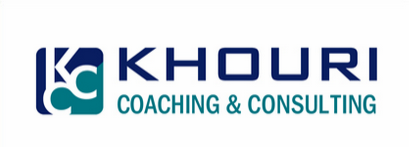This is the third part in a series of What-I-Learned-At-Fidelity-Investments-About-Being-a-Leader 
Mastering communication is a key component in succeeding as a leader. It is not enough to have a good idea, or be a terrific project manager, or to be great at developing software, you also need to effectively communicate it. Mastering the art of communication is so important because it is what keeps everyone on the same page, and enables you to take appropriate action. Without communication, there can be misunderstanding or lack of action. Ultimately, good communication leads to improved productivity.
In this article, I would like to layout a blueprint for a communication plan.
Who
Think of yourself as a hub of communication. The Leader is in the cente r, communicating with all of those people around him / her, and must provide the right information to the right people in the right format for it to be effective. Too much and too little information is not appropriate.
r, communicating with all of those people around him / her, and must provide the right information to the right people in the right format for it to be effective. Too much and too little information is not appropriate.
Your Team. It is important to keep your team up to date. I find it effective to do so using a number of formats -- staff meetings, 1:1s, and email. In staff meetings, establish an agenda, seek input from your team, and have an open discussion about projects, strategy, and issues. It is a time for your staff to learn about what is going on with their peers. It is a time to encourage teamwork, and a time to identify how staff members can help each other. It is also time for problem solving.
Your Peers. It is equally important to keep your peers and business partners up-to-date on the status of your projects and your team. In my leadership roles at Fidelity, I found it beneficial to set up recurring project status meetings with business partners to share the current status of projects, issues, risks and actions. When all the data is on the table, it is easier to take appropriate action. An open line of communication with partners and peers also helps to identify problem areas early and provides a forum for discussion.
Your Superiors. With your immediate manager and other superiors, it is vitally important to communicate strategy, project status, HR / Employee issues, and vendor updates. I found it helpful to structure the 1:1 agenda with my boss along these topics, putting the most important ones up front to ensure they were covered in the scheduled time.
Other Stakeholders. Identify who the key stakeholders are and what means of communication are best suited for effectively reaching them.
What
What should you be communicating? Here are some things to consider:
Team -- Vision, project information, upcoming events, how your work fits into the organization, issues.
Peers / Partners -- Project status, issues, risks, actions
Superiors -- Strategy, project status, HR / Employee issues, Vendor updates
How
Different situations call for different forms of communication. Richer forms of communication, like face-to-face meetings, are best and not always possible. So, as the sensitivity of topics decrease, other forms can be used. Using multiple formats to communicate information will work best -- face-to-face meetings, email, phone calls. Think carefully about the audience and content before selecting the most effective means to portray the information.
For example, use 1:1 meetings to discuss the progress of individual projects, to solicit feedback on targeted ideas, and to discuss individual development plans. Use email for updates that require no discussion or interpretation.
Good communicators listen actively, use stories to communicate ideas, and are clear about what they are communicating.
When
The simple answer is early and often. Get the information on the table, and be transparent about it. When the information is available, it is easier to solve problems. When the information is not available, issues fester, and the longer they fester the more difficult they are to resolve.
Each of these topics could easily be a blog entry on its own, and for that matter, a book. The simple point is this -- mastering communication is a key to being a successful leader because it helps ensures all stakeholders are operating with the right information. Hopefully, I have given you the start and framework for thinking about communication and developing a plan.
Don's coaching questions:
- When are you at your best communicating ideas?
- What does your communication plan look like?
- What actions can you take this week to improve communication?


